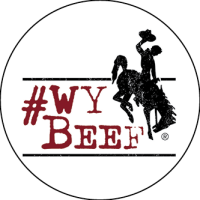About Wyoming beef council
The Wyoming Beef Council (WBC) is a non-profit organization that was established in 1971 to promote, research and educate the public about the beef industry in Wyoming. The council is made up of five members who are appointed by the Governor of Wyoming. These members set priorities for the WBC, determine funding allowances and evaluate programs.
The WBC represents all segments of beef production within Wyoming including range cattle, dairy cattle and feedlots. The council's primary goal is to increase demand for beef products through various marketing initiatives such as advertising campaigns, consumer education programs and public relations efforts.
One of the key ways that the WBC promotes beef consumption is through its "Beef It's What's For Dinner" campaign. This campaign highlights the nutritional benefits of beef as well as its versatility in cooking. The campaign has been successful in increasing consumer awareness about beef products and has helped to boost sales for producers throughout Wyoming.
In addition to promoting beef consumption, the WBC also funds research projects aimed at improving production practices within the industry. These projects focus on areas such as animal health, genetics and environmental sustainability.
The WBC also provides educational resources for consumers, producers and educators alike. These resources include recipes, cooking tips, nutrition information and classroom materials designed to teach students about agriculture and food production.
Funding for these programs comes from a $1-per-head checkoff collected on all Wyoming cattle sold or transferred ownership within state lines. This checkoff program was established by Congress in 1985 with support from producers across the country who recognized that a coordinated effort was needed to promote their product effectively.
Overall, the Wyoming Beef Council plays an important role in supporting one of Wyoming's most important industries - agriculture. Through its promotion efforts, research initiatives and educational resources it helps ensure that consumers have access to high-quality beef products while also supporting sustainable farming practices that benefit both producers and consumers alike.
